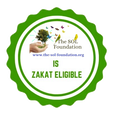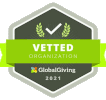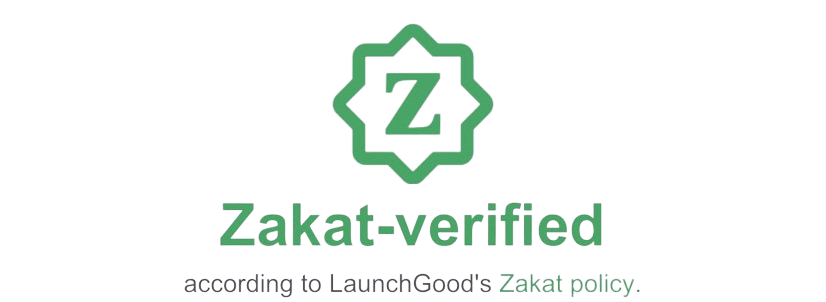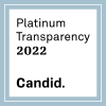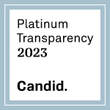Zakah Eligibility
If a donor selects Zakat rather than Sadaqa for their contribution, then The SOL Foundation allocates that Zakat contribution to Zakat-eligible expenses. Not every project at The SOL Foundation is Zakat-eligible, but every Zakat giving will be allocated to the Zakat-eligible projects (projects that directly help the rights of Muslims and the justice expenses for the needy).
Zakat Funds will be allocated to the #zerohunger #education initiatives. This consists of all expenses related to the initiatives (i.e., program costs, communications, salaries, benefits, management, etc.)
Justification:
All work provides direct services and programs to the community, especially for those with no financial means to receive it otherwise.
Partnership, Policy, Advocacy, Collaboration Relations work leads to the creation of projects that protect the rights of Poor People, regardless of their to be fed and have access to fresh food and water.
Zakat Funds will not be allocated toward:
Fatwas
Numerous Muslim scholars have confirmed that Zakat is payable to organizations for projects and expenses that directly serve the poor and/orally Muslim faith based community by protecting their rights. This is because such endeavors which constitute significant portions of the work done by The SOL Foundation (and other such organizations) can be classified as fi-sabilillah, which is one of the eight categories of Zakat recipients detailed in the Quran (Chapter 9, Verse 60).
Islamic scholars of LaunchGood and CAIR Chicago have provided verification to The SOL Foundation and its projects as Zakah verification.
The categories of recipients of zakah are stated in the following verse: “Charities are (meant) only for the poor and the needy, and those who are charged with collecting them, and those whose hearts are to be won over, and for the freeing of human beings from bondage, and (for) those who are overburdened with debts, and (for those who strive) in Allah’s cause (fi sabili-llah), and (for) the way-farer: (this is) an ordinance from Allah—and Allah is All-Knowing and All-Wise” (At-Tawbah: 60).
As is clear from the above verse, one of the categories is fi sabili-llah. … among the commentators of the Qur’an (mufassirun) as well as the jurists (fuqaha’), who have used the term fi sabili-llah in a far wider sense, thus extending it to include all beneficial works and projects that are of common benefit to the Ummah. They have thus included in this category such services as funeral arrangements, building and taking care of schools and mosques, establishing hospitals, building bridges, etc. In short, they definitely include institutions that provide educational or social services under this category and thus eligible to receive funds from zakah.
A principle of jurisprudence states: if a thing which has been considered as obligatory cannot be fulfilled without fulfilling another, then fulfilling the latter also becomes obligatory. Thus since protecting the rights of poor and underprivileged communities and empowering everyone cannot be achieved without such institutions, it is imperative that necessary support and maintain such institutions.
Muslims should have no hesitation in giving part of their Zakah to The SOL Foundation, which is providing a most timely and essential service for the cause of Islam and Muslims. They both have a reputation for professionalism, efficiency, commitment, and integrity, which in my mind are the most valuable assets of any Islamic organization worthy of the name.
May Allah (SWT) give us all the honor of serving His cause efficiently and professionally, and may He also accept our humble efforts in His cause. Ameen.”
Sheikh Ahmad Kutty is a well known Islamic Scholar, a regular commentator on Islamic issues and makes fatwas on issues of importance to Muslims.
Dr. Muzammil Siddiqi, chairman of the fiqh council of North America states:
The Qur’an says about the expenditure of Zakat funds:
“Alms are for the poor and the needy, and those employed to administer the (funds); for those whose hearts have been (recently) reconciled (to Truth); for those in bondage and in debt; in the cause of Allah; and for the wayfarer: (thus is it) ordained by Allah, and Allah is full of knowledge and wisdom.” (Al-Tawbah 9:60)
Thus there are eight areas mentioned where Zakat money can be used:
The poor, the needy, those employed for zakat collection, those whose hearts are to be reconciled to Islam, those who want to free the slaves, debtors, those in the path of Allah, and travelers (rendered helpless).
The SOL Foundation is a well-known nonprofit and registered organization in America. Its mission statement says that its purpose is “to feed the underprivileged and orphans, provide education, and empower poor communities.
Through that mission, the communities can have access to education, regardless of their gender, have access to food and fresh water and most of all be empowered and thrive sustainably.
if you have any further questions or specific questions on your Zakat giving, please address to [email protected]
Zakat Funds will be allocated to the #zerohunger #education initiatives. This consists of all expenses related to the initiatives (i.e., program costs, communications, salaries, benefits, management, etc.)
Justification:
All work provides direct services and programs to the community, especially for those with no financial means to receive it otherwise.
Partnership, Policy, Advocacy, Collaboration Relations work leads to the creation of projects that protect the rights of Poor People, regardless of their to be fed and have access to fresh food and water.
Zakat Funds will not be allocated toward:
- Fundraising expenses (i.e. banquets, speakers, direct mail, etc.)
- Administrative expenses (i.e. office rent, utilities, etc.)
- Funds received between January 1st to December 31st will be allocated in the same year.
Fatwas
Numerous Muslim scholars have confirmed that Zakat is payable to organizations for projects and expenses that directly serve the poor and/orally Muslim faith based community by protecting their rights. This is because such endeavors which constitute significant portions of the work done by The SOL Foundation (and other such organizations) can be classified as fi-sabilillah, which is one of the eight categories of Zakat recipients detailed in the Quran (Chapter 9, Verse 60).
Islamic scholars of LaunchGood and CAIR Chicago have provided verification to The SOL Foundation and its projects as Zakah verification.
The categories of recipients of zakah are stated in the following verse: “Charities are (meant) only for the poor and the needy, and those who are charged with collecting them, and those whose hearts are to be won over, and for the freeing of human beings from bondage, and (for) those who are overburdened with debts, and (for those who strive) in Allah’s cause (fi sabili-llah), and (for) the way-farer: (this is) an ordinance from Allah—and Allah is All-Knowing and All-Wise” (At-Tawbah: 60).
As is clear from the above verse, one of the categories is fi sabili-llah. … among the commentators of the Qur’an (mufassirun) as well as the jurists (fuqaha’), who have used the term fi sabili-llah in a far wider sense, thus extending it to include all beneficial works and projects that are of common benefit to the Ummah. They have thus included in this category such services as funeral arrangements, building and taking care of schools and mosques, establishing hospitals, building bridges, etc. In short, they definitely include institutions that provide educational or social services under this category and thus eligible to receive funds from zakah.
A principle of jurisprudence states: if a thing which has been considered as obligatory cannot be fulfilled without fulfilling another, then fulfilling the latter also becomes obligatory. Thus since protecting the rights of poor and underprivileged communities and empowering everyone cannot be achieved without such institutions, it is imperative that necessary support and maintain such institutions.
Muslims should have no hesitation in giving part of their Zakah to The SOL Foundation, which is providing a most timely and essential service for the cause of Islam and Muslims. They both have a reputation for professionalism, efficiency, commitment, and integrity, which in my mind are the most valuable assets of any Islamic organization worthy of the name.
May Allah (SWT) give us all the honor of serving His cause efficiently and professionally, and may He also accept our humble efforts in His cause. Ameen.”
Sheikh Ahmad Kutty is a well known Islamic Scholar, a regular commentator on Islamic issues and makes fatwas on issues of importance to Muslims.
Dr. Muzammil Siddiqi, chairman of the fiqh council of North America states:
The Qur’an says about the expenditure of Zakat funds:
“Alms are for the poor and the needy, and those employed to administer the (funds); for those whose hearts have been (recently) reconciled (to Truth); for those in bondage and in debt; in the cause of Allah; and for the wayfarer: (thus is it) ordained by Allah, and Allah is full of knowledge and wisdom.” (Al-Tawbah 9:60)
Thus there are eight areas mentioned where Zakat money can be used:
The poor, the needy, those employed for zakat collection, those whose hearts are to be reconciled to Islam, those who want to free the slaves, debtors, those in the path of Allah, and travelers (rendered helpless).
The SOL Foundation is a well-known nonprofit and registered organization in America. Its mission statement says that its purpose is “to feed the underprivileged and orphans, provide education, and empower poor communities.
Through that mission, the communities can have access to education, regardless of their gender, have access to food and fresh water and most of all be empowered and thrive sustainably.
if you have any further questions or specific questions on your Zakat giving, please address to [email protected]




